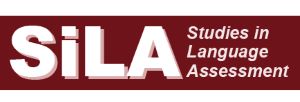Unguided. Assessing young EAL/D learners' achievements in mainstream curriculum areas
Susan Poetsch, University of Sydney
|
https://doi.org/10.58379/ZROG5633
|
Volume 12, Issue 2, 2023
|
Abstract: This case study serves to illustrate challenges faced by classroom educators when assessing the achievement of young English as an Additional Language/Dialect (EAL/D) learners in the Australian Curriculum. The study is situated in a remote community where a traditional Indigenous language is spoken as the everyday form of communication, and English is learned in what is essentially a foreign language (EFL) setting. Although the students’ English proficiency is not advanced, they are learning the mainstream curriculum, delivered and assessed through English. The study triangulates the available assessment guidance with the skills of a classroom teaching team and sample written and oral evidence of their students’ learning, with reference to a Year 2 achievement standard in Science. This methodology draws out the ways in which the Australian Curriculum assessment materials lack applicability to this and similar remote Indigenous community EFL classrooms because this work is unguided. A specific improvement would be annotated exemplars which illustrate how to assess EAL/D learner achievement in each learning area – Science, Mathematics and so on. Assessment is pivotal for informing teaching, feeding back to students, reporting to parents/caregivers, and for system accountabilities. Thus, the relationship between assessing student learning of Australian Curriculum subject areas, and assessing the language and learning requirements of students whose English proficiency is not advanced, needs to be clearly articulated.
Key words: Australian Curriculum, early years TESOL assessment, remote community Indigenous students, EAL/D in the classroom, CLIL
